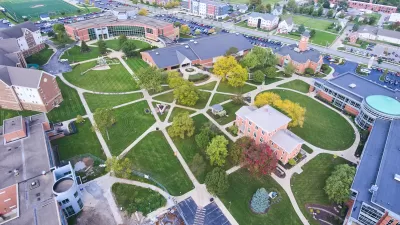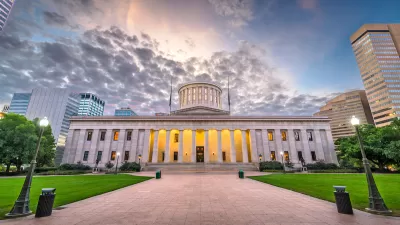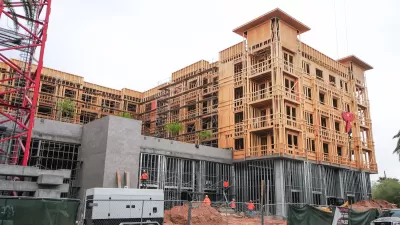Incentivizing development on institutionally owned land could help boost the city’s affordable housing supply.

A new report from the Urban Institute outlines the potential partnerships the city of Nashville could leverage to build more affordable housing.
Report authors Peter A. Tatian, Karolina Ramos, and Gabe Samuels highlight their findings, writing that “promoting and facilitating housing development on land belonging to institutional landowners” could help the city promote more housing development on land owned by institutions such as schools, healthcare facilities, and faith-based groups. “We also analyzed housing development opportunities under both current and alternate zonings, as well as the transit-adjacency of developable parcels (legally distinct pieces of land),” the authors add.
Among the report’s key findings, “Across 1,027 colleges and universities, faith-based institutions, and health care institutions in Metro Nashville, up to 5,539 units could be constructed on 986 parcels under current land availability and zoning laws.” If parcels in commercial and retail areas were rezoned to accommodate residential use, institution-owned properties could create almost 10,000 new housing units.
“Partnering with local affordable housing developers can help institutions with limited experience in housing or community development to maximize underutilized land without bearing sole responsibility for assembling financing, overseeing construction, and managing properties.”
FULL STORY: https://www.urban.org/research/publication/promoting-affordable-housing-partnerships-nashville

Maui's Vacation Rental Debate Turns Ugly
Verbal attacks, misinformation campaigns and fistfights plague a high-stakes debate to convert thousands of vacation rentals into long-term housing.

Planetizen Federal Action Tracker
A weekly monitor of how Trump’s orders and actions are impacting planners and planning in America.

Chicago’s Ghost Rails
Just beneath the surface of the modern city lie the remnants of its expansive early 20th-century streetcar system.

Bend, Oregon Zoning Reforms Prioritize Small-Scale Housing
The city altered its zoning code to allow multi-family housing and eliminated parking mandates citywide.

Amtrak Cutting Jobs, Funding to High-Speed Rail
The agency plans to cut 10 percent of its workforce and has confirmed it will not fund new high-speed rail projects.

LA Denies Basic Services to Unhoused Residents
The city has repeatedly failed to respond to requests for trash pickup at encampment sites, and eliminated a program that provided mobile showers and toilets.
Urban Design for Planners 1: Software Tools
This six-course series explores essential urban design concepts using open source software and equips planners with the tools they need to participate fully in the urban design process.
Planning for Universal Design
Learn the tools for implementing Universal Design in planning regulations.
planning NEXT
Appalachian Highlands Housing Partners
Mpact (founded as Rail~Volution)
City of Camden Redevelopment Agency
City of Astoria
City of Portland
City of Laramie





























